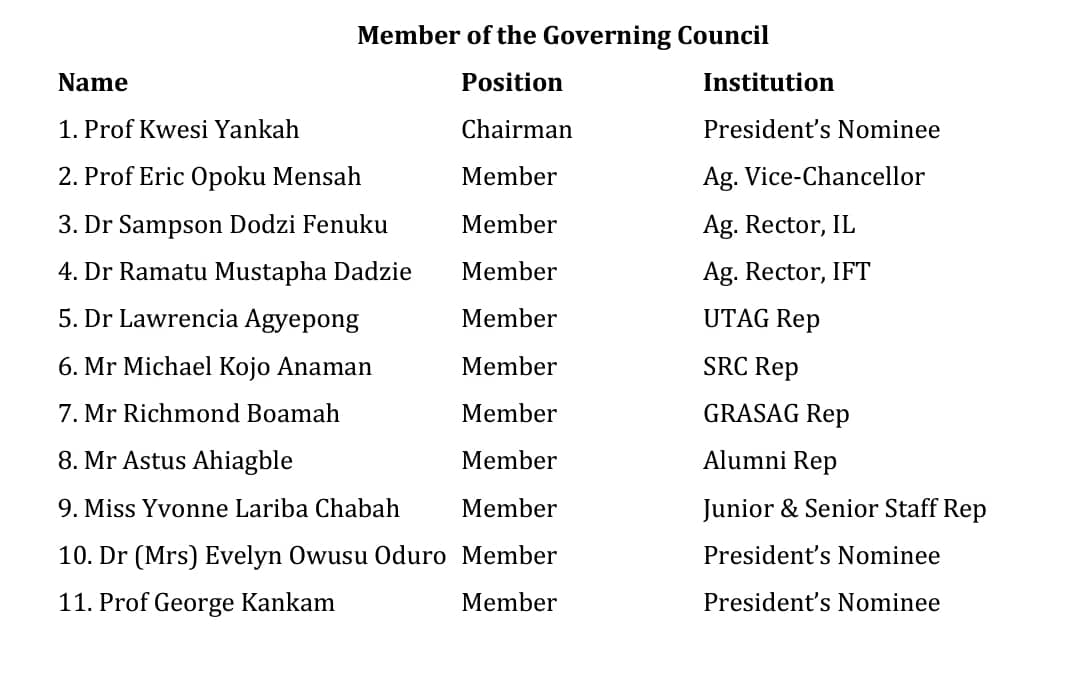
— A trailblazer returns to drive national skills transformation
The recent appointment of Sebastian Deh, Member of Parliament for Kpando, as Chairman of the Governing Council of the Ghana Technical and Vocational Education and Training (TVET) Service has been greeted with much acclaim by educators, industry players, stakeholders, as well as the good people of Kpando.
His selection is a powerful statement: Ghana is placing one of its most effective architects of TVET reforms at the helm to build on a foundation he helped establish through years of dedicated service.
As a former Executive Director of the Council for Technical and Vocational Education and Training (COTVET), Hon. Deh led major policy and institutional reforms that reshaped the technical education sector in Ghana.
Sebastian comes to this oversight role with a worth of considerable knowledge, experience, and an innate drive to compliment the vast assembly of expertise and quality of the members with like focus for transforming Ghana through TVET.
Under his leadership, the sector adopted and instituted Competency-Based Training (CBT) across public institutions, introduced the National TVET Qualifications Framework, and launched the Skills Development Fund, which awarded grants to small, medium and large scale industries in support of skills upgrading of some 100,000 employees and master craft persons.
These interventions significantly improved the relevance and quality of technology institutions to develop innovative technology required by industry to be efficient and competitive in the global arena.
Mr Deh’s vision for this sector therefore dovetails perfectly into that of the Ghana TVET Service which is committed to empowering the youth of Ghana with the requisite skills and knowledge to help build a brighter future and bridge the gap between education and industry, while creating a seamless transition for the youth into the world of work.
A strong advocate of strategic policy and innovation,he played key roles in driving landmark initiatives such as the Ten-Year Strategic Plan, and the Technical Universities Bill.
He was also instrumental in promoting market-driven training models by introducing modular short courses such as solar PV installation, ICT device servicing, and automotive diagnostics that provided young people with quick access to income generating opportunities while maintaining national certification standards.
In the Kpando constituency, Mr Deh translated this national vision into community impact. At Kpando Technical Institute (Kpantech), he introduced specialized training programs in electronics and ICT, which continue to empower young people with hands on skills.).
He helped equip the ICT lab at the Sovie Technical Institute (Sovtech) and facilitated scholarships for 90 female students in electronics. These efforts, along with his broader developmental interventions, including the provision of boreholes, clinic facilities, and libraries demonstrate his commitment to both educational transformation and inclusive local development.
On a broader national scope, Mr Deh has reaffirmed the essence of TVET, making it responsive, inclusive, and market-relevant. His return as Chairman of the Governing Council for the Ghana TVET Service, the agency responsible for equipping the critical mass of Ghanaian youth with relevant skills for industry is a deserved recognition and testament of his expertise and visionary leadership over his years of public service.
The people of Kpando wholeheartedly congratulate him on this national honour and are immensely proud to see one of their own take charge of Ghana’s skills transformation agenda once again. This in no doubt will be a huge catalyst to President John Mahama’s flagship 24 HE economic policy.
May the Almighty God guide him with wisdom and strength as he takes on this challenging, arduous national task of delivering TVET that stimulates creativity, innovation and entrepreneurship to meet industry demands for sustainable national development.
The post Sebastian Deh appointed chair of TVET Governing Council appeared first on The Business & Financial Times.
Read Full Story



















Facebook
Twitter
Pinterest
Instagram
Google+
YouTube
LinkedIn
RSS